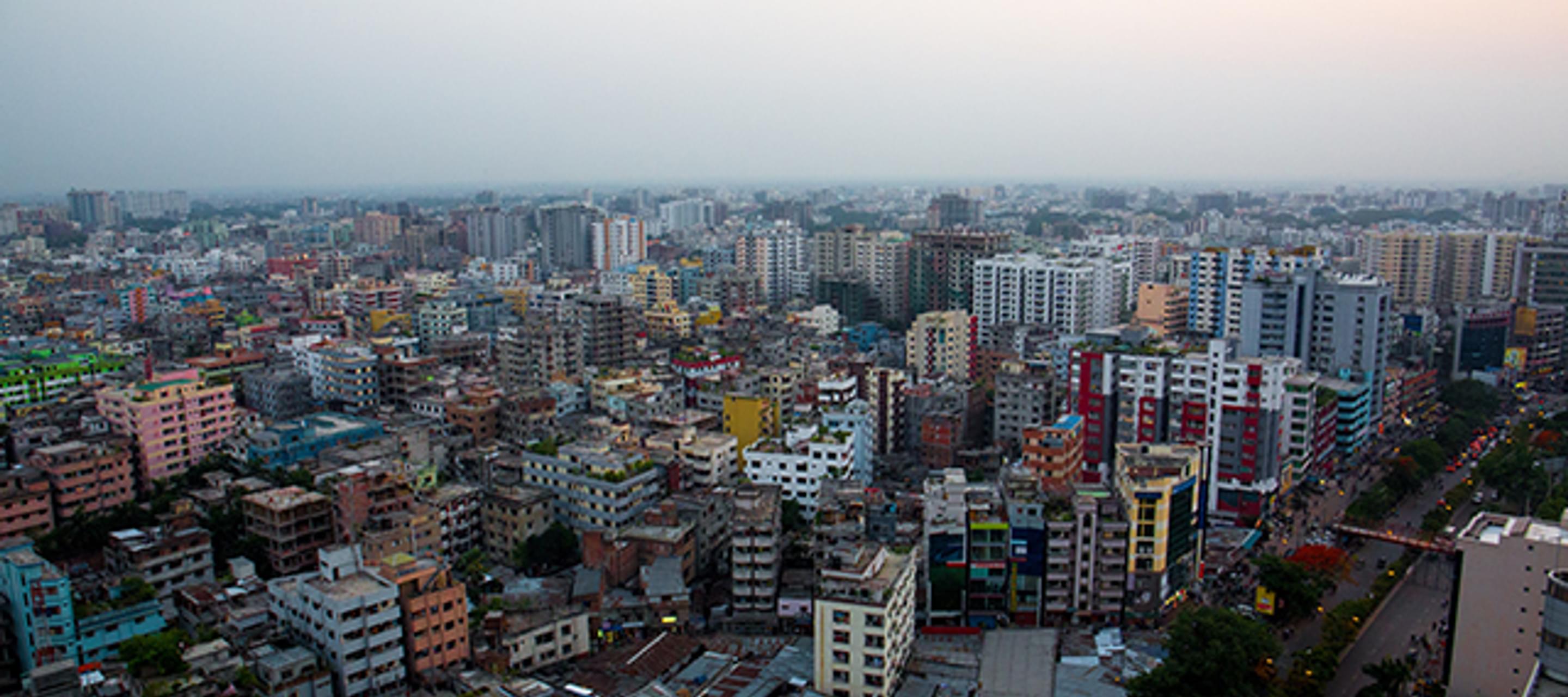Human Rights, Business and the Dhaka principles
18 December 2012

This op-ed was originally published in the Daily Star in Dhaka Bangladesh.
On this International Migrants Day, we are reminded of the plight of migrant workers around the globe, whether they are working in cities in their home countries or overseas. Only recently, Bangladesh witnessed the tragic blaze at the Tazreen Fashion factory in Ashulia where rural migrants were among those who died.
Migrant workers from Bangladesh in construction sites across the Middle East suffer because of appalling work and living conditions.
Bonded labour is commonplace, and protection for these vulnerable workers is almost non-existent. The same is true of migrant workers across much of South and Southeast Asia.
And yet, even in the face of such appalling treatment, remittances from these workers contribute hugely to national economies and social development. In Bangladesh the figure stands at 12% of GDP. Without their labour, the global economy would cease to function in many ways. What are the practical steps needed to ensure that this vulnerable workforce receives greater protection and respect?
First, the government must be held accountable for its obligations to protect worker rights as spelled out in the International Labour Organisation (ILO) conventions.
Second and equally important, the business community, regardless of sector or location, has its own responsibility to respect human rights as defined in the UN Guiding Principles on Business and Human Rights. Companies face significant risk to their reputation if their due diligence regarding treatment of workers far down complex supply chains is inadequate. We know that ignorance is no excuse. Walmart's name has been in the world's press recently in association with the fire at Ashulia for currently or formerly sourcing from Tazreen Fashion factory.
Walmart will not be alone in looking more closely at its due diligence mechanisms regarding checking fire safety regulations and other working conditions in suppliers' factories in Bangladesh and elsewhere in the aftermath of the tragedy.
Companies should also know how migrant workers recruited in Bangladesh are treated when they end up working in their suppliers' factories in Jordan or Mauritius, or on construction sites of hotels in Dubai or Malaysia, or, indeed, at home, in the export processing zones of Chittagong or Dhaka. If there is a risk of bonded labour or other forms of exploitation in their suppliers' or contractors' operations, that risk travels up the supply chain to the very top. In September this year, US President Barack Obama spoke of the urgency of combating modern-day slavery, and US legislation is beginning to require disclosure by US companies of steps they are taking to combat trafficking and forced labour in their global supply chains.
Despite such efforts, workers remain vulnerable whether they have travelled across international boundaries or within their own nations. As important as government-led efforts are in protecting migrant worker rights, business can't and shouldn't wait for governments to fix the problem.
The company that does not undertake corporate human rights due diligence throughout supply chains risks being complicit in serious human rights abuses.
Do companies check to see whether contract workers are being charged intolerable levels of fees to secure a job overseas, or find themselves unable to escape from debt bondage, while working overseas or at home? Are companies aware whether the passports of workers recruited abroad are being withheld by their labour broker or employer, denying migrants lawful freedom of movement and means of identification?
As a contribution to ongoing efforts to protect migrant worker rights, the Institute for Human Rights and Business is today launching with RMMRU in Bangladesh and globally the Dhaka Principles for Migration with Dignity. The Dhaka Principles were first discussed at an international roundtable on Migrant Rights convened by RMMRU and IHRB in Dhaka in June 2011.
They have developed over the past two years through a multi-stakeholder process involving companies, unions, governments and experts from around the world. They provide companies and other key actors with a set of overarching principles and practical guidance, which applies from the point of recruitment of a migrant worker to the point of his or her safe return home.
It would be fitting to think that International Migrants Day 2012 saw the start of a global business commitment to abide by the Dhaka Principles and to fulfil their responsibility to respect the human rights of migrant workers everywhere. A powerful step in achieving a more just world for all would be to accord migrant workers the human dignity and decency of work that their contribution to the global economy merits, which is their fundamental right. And that work should begin today in Bangladesh.




